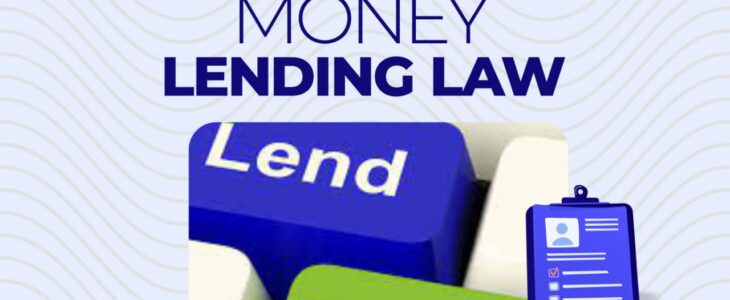
How is a Loan Company regulated in Nigeria?
A loan company, whether buy-now-pay-later (“BNPL”) or digital lender or cooperative society or whatever the design, is usually regarded as a money lender under a State’s Money Lenders Law in so far as it is providing micro or consumer credit to individual or small businesses. It is noteworthy that a loan company can also be registered in Nigeria as a micro finance bank or finance company under the regulation of the Central Bank of Nigeria (“CBN”). The first category of loan company is regulated by either the Magistrate’s Court or the Ministry of each State i.e. a sub-national government (Nigeria has 36 States and a Federal Capital Territory in Abuja) whilst those licensed and regulated by the CBN are some sort of federal-regulated businesses.
Regardless of their status of registration or regulation, all loan companies seeking to do digital lending have additional obligation to register with the Federal Competition and Consumers Protection Commission (“FCCPC”) before their loan Apps can go live on the Nigerian internet space or be integrated with any payment company or hosted on any App store like Google Playstore.
The major difference in all of the above three loan companies is that the micro finance bank is the only deposit taking company, others cannot take deposit from the public except through borrowings. Also, micro finance banks and finance companies tend to focus more on credit services for medium and large businesses whilst State-licensed loan companies focus on individuals and small businesses. It is important to add that CBN-licensed companies are very expensive to set up and require stringent licensing requirements and strict operational regulation.
Is a licence required to provide digital lending services in Lagos?
Yes. Every money lender within Lagos State must be licensed by the Lagos State Ministry of Home Affairs and Tourism (“Ministry”) unless it is lending money as a cooperative society which is licensed by Ministry of Trade and Commerce or any of the above CBN-licensed financial institution (e.g. (micro finance bank or finance company) or a statutory body or a licensed pawnbroker.
Under the Lagos State Money Lenders Law(“Lagos State Law”), it is an offence to engage in a digital lending business without the required government licence and anyone found engaging in any activity of digital lending, without with the required licence, will be presumed to be a Money Lender and held liable under the law.
It is important to mention that in Lagos State, a digital lender is granted both Money Lender Certificate (by a Chief Magistrate’s Court) and Money Lender Licence (by the Ministry). Both money lender certificate and licence are usually granted to a corporate applicant who meets the requirements.
What is the scope of the Digital Lending Operations?
The Lagos State Law is silent on the scope of the services that a digital lender can provide with the money lender certificate and licence.
In our view, however, a digital lender can loan any amount of money not exceeding the value of its share capital, provided there is nothing in the nature of the transaction that violates any laws and guidelines of the financial institutions regulated by the CBN or the Securities and Exchange Commission (“SEC”).
Can a digital lending company obtain a money lender licence in one State and use same to operate digitally in other States?
With the advent of technology, it is possible for the registered address of a money lender to be in one State whilst the business is potentially servicing customers from or residents in different other States of the country through its digital lending applications.
Please note, however, that a digital lending company requires the money lender certificate and licence of every State in which it seeks to operate either physically or digitally. Failure to obtain the money lender certificate and licence from a particular State where loans are given to customers may create enforcement issues and deprive the company the right to seek recovery or enforce a loan agreement in the State.
Also, the promoters of such lending business may be exposed to criminal liability for doing such business without the required licence. It is an offence to engage in money lending business in a State without the certificate and licence issued by the Government of that State.
What are the requirements for registering a Digital Lending company in Lagos?
In Lagos State, an applicant for money lender’s licence must be incorporated by the CAC as a private limited liability company with a share capital of not less than N20 Million and at least two (2) adult directors who must each have three (3) years’ tax clearance certificate.
The general requirements for setting up a digital lending business as a private limited liability company in Lagos State are as follows:
i. Two (2) proposed names for the company for CAC’s name screening and approval;
ii. A proposed registered address, email and phone number of the company in Nigeria;
iii. Names, resident address, email address, phone number, electronic signature(s) and means of identification (preferably data page of international passport) of the shareholder(s), at least two directors and the company secretary;
iv. The amount of share capital (please note that the minimum share capital of a money lender company must not be less than N20 million share capital);
v. The division of the company’s shares amongst the shareholders (if the company has more than one shareholder) and the names of person with significant control over the company;
vi. The description of business which must be solely for money lending services. However, we have successfully registered and obtained money lender licence for tech companies as a digital lending business with additional business objects relating to development of mobile applications, technology services and use of lending technologies and other software or digital solutions;
vii. A copy of the company’s Memorandum and Articles of Association (“MEMART”). The CAC has a generic MEMART for applicants to adopt when incorporating a new company but we can insert relevant clauses to make it suitable for the money lending businesses.
ix. Any other document(s) (such as work permit or business permit, etc. for foreigners who are already in Nigeria) as may be required by the CAC;
What are the requirements for obtaining money lenders’ license (for a company) in Lagos State?
1 Two Application Letters in the prescribed form on the letter head paper of the company: one to the Magistrate’ Court and the other subsequently to the Permanent Secretary of the Ministry of Home Affairs;
2 Certified True Copies of the Certificate of Incorporation, the Memorandum and Articles of Association (“MEMART”) of the Company and other CAC Forms showing the share capital of the company, the shareholder(s), the director(s), company secretary and other particulars. Please note that the MEMART must contain an object to the effect that the Company engages in the business of providing lending services to companies, individuals, etc.;
3 Three (3) years Tax Clearance Certificate (Lagos requirement only) of at least 2 Individual directors of the Company (if they are more than two directors). Please note that Lagos requires that the company must have at least two (2) adult directors.
4 Evidence of maintenance of a current account with a licensed bank in Nigeria;
5 Evidence of payment of Company Income taxes for 3 years (for old company);
6 Passport Photographs of the individual applicant (or of director of a corporate applicant) and means of identity;
7 Evidence of application for TIN (this is applicable only when it is a newly incorporated company).
8 Reference letter from the applicant’s bank.
9 Forms B and C from the Magistrate’s Court.
10 Police Clearance Report.
What are the Applicable Costs for Incorporating and obtaining a Money Lender Certificate and Licence?
| S/N | Particulars | Amount (N) |
| 1. | Company registration costs |
|
| 2. | Costs associated with police report for two directors (@ N50,000 per director) |
|
| 3. | Company seal, tax registration etc. |
|
| 4. | Costs for processing Money Lender Certificate at the Magistrate’s Court (N200,000) and Money Lender Licence at the Ministry (N350,000) | |
| 5. | Miscellaneous expenses (taxi, telephone calls, printing, data, courier, etc.) |
|
| 6. | Post licensing registrations with Federal Competition and Consumer Protection Commission (“FCCPC”), the Nigerian Data Protection Commission (“NDPC”) and thee Moneylenders Association of Nigeria (“MAN”) | Available on request |
Please note that where the two directors do not have three years’ tax clearance certificates (“TCC”), there may be additional costs to process their TCCs.
How long does it take to complete the incorporation and licensing of a Money Lending company?
| S/N | Particulars | Estimated Timelines |
| 1. | Company registration | 2 days |
| 2. | Police report for two directors | 5 days |
| 3. | Company seal, bank account opening, tax registration etc. | 10 days |
| 4. | Processing Money Lender Certificate at the Magistrate’s Court | 7 days |
| 5. | Processing Money Lender Licence at the Ministry is subject to satisfactory inspection by the Ministry | 4 to 6 weeks |
| 6. | Other post licensing registrations with Federal Competition and Consumer Protection Commission (“FCCPC”) and Moneylenders Association of Nigeria | 2 weeks |
The estimated timeline for completing the process of incorporation and licensing is 6 to 8 weeks. Please note that the timeline for the grant of money lender’s licence by the Ministry may be longer because of the scheduling of its inspection of the applicant’s physical office before licensing.
What are the benefits of obtaining Money lending Certificate and License
1. Right to institute an action in court to recover the principal loan and accrued interest from a defaulting borrower. It is an offence to lend money for purpose of attracting interests unless the lender has obtained a money lender’s certificate and licence.
2. Right to own moveable and immovable property in the company’s name.
3. Certificate and licence serve a huge added advantage and brand visibility.
4. It can attract serious investors and create an opportunity for business expansion if a money lending business is registered and licensed.
5. Protects the business and promoters from criminal liability for doing money lending business without regulatory licence.
What are the procedures for obtaining a Money Lender’s License in Lagos State?
1. The first step is to make a formal application on the Company’s Letter Head to the Commissioner of Police, Police Command, attaching the applicant company’s Certificate of Incorporation, MEMART and other CAC Forms showing the particulars of shareholders and directors of the company.
2. Upon the above application, the Police will obtain the Applicant’s (or director’s) thumbprints for the purpose of issuing a Clearance Report to the Applicant.
3. Thereafter, the applicant is required to make an application in a prescribed form to the Chief Magistrate located within the Magisterial District where the business is situated.
4. If the application is successful, a Money Lender Certificate (Form B) from the Chief Magistrate along with a Letter which would be addressed to the Permanent Secretary of the Ministry, confirming due compliance, and recommending the issuance of the Money Lender Licence.
5. Thereafter, a further application for a Money Lender Licence shall be made to the Ministry attaching all the relevant documents.
6. The next stage is physical inspection of the money lender’s place of business by the officials from the Ministry of Home Affairs who, on an agreed date, will physically visit and inspect the premises and the officers of the Applicant company (including books and records where the applicant has already commenced operations).
7. Upon satisfaction by the official of the Ministry that the applicant has complied with the statutory requirements, the applicant will be issued with a Money Lender License for a period of one (1) year and shall be renewable every year.
Is there any other mandatory post-licensing registration for digital lenders in Lagos State?
Yes. The Federal Competition and Consumer Protection Commission (“FCCPC”) has in the exercise of its powers under its enabling law, ventured into the regulation of digital lending business in Nigeria. Recently, in exercise of the powers conferred upon it by sections 17, 18 and 163 of the Federal Competition and Consumer Protection Act, 2018 (“the FCCP Act”), and all other powers enabling it in that behalf, the FCCPC issued the Limited Interim Regulatory/Registration Framework and Guidelines for Digital Lending, 2022 (“Guidelines for Digital Lending 2022”).
The Guidelines for Digital Lending 2022 provides that every applicant seeking to register with the FCCPC must present a proof of certification of privacy compliance by the NDPC and evidence of membership of a trade or professional association. This presupposes that a digital lender must register with the Money Lenders Association the same way Finance Companies is required to register with Finance Houses Association of Nigeria (“FHA”) or the Microfinance Banks with the National Association of Microfinance Banks (“NAMB”).




